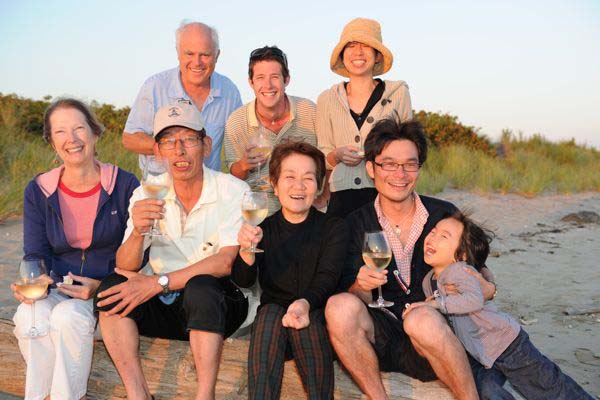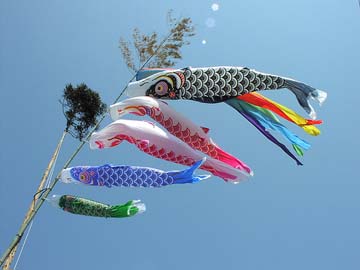Japans Resolve Is Found In Its Language

Happier times. The author with his parents and his Japanese host family. This photo and feature photo by Richard Patterson.
THIS MORNING I EXCHANGED a few e-mails with my ex-girlfriend, Rika, who lives in Tokyo. She confirmed reports of shortages of food and fuel in the Tokyo metropolitan region, and sent a photo of herself wearing a bicycle helmet to bed. Overall, though, Rika seemed remarkably sanguine about the disaster that continues to unfold. Im used to the feeling of camping, she wrote. Im not stressed out.

Rika writes in Japanese, and as I translated her notes, I was struck by three recurrent words and phrases that capture a particularly Japanese cultural response to crisis.
These words dont have easy English equivalents, but go a long way towards explaining why Rika isnt worried, and why I have faith in Japans ability to recover from the horrific devastation of earthquake, tsunami, and slow-motion nuclear catastrophe.
1. Shoga Nai
There are some things that people can control, and other things that cant be helped. In my experience, making the distinction between those two categories can be a key to happiness. The phrase shoga nai means something like it cant be helped and is used to dismiss ! anything thats beyond ones capacity to influence or prevent.
Shit happens. Shoga nai. The earthquake and tsunami were devastating. Shoga nai.
For someone like Rika, living in Tokyo, the nuclear threat is impossible to mitigate shoga nai. Why stress? Better to keep plugging away, doing your best and making a difference where you can.
Heres what Rika wrote:
Tim, youre probably most worried about the radioactivity, right? Thats something that cant be helped (shoga nai). We dealt with Hiroshima and Nagasaki, so we can deal with it again.
2. Ganbatte
If you go to a sporting event in Japan, youll hear fans yelling Ganbatte! to encourage the athletes on the field. Ganbatte is an exhortation to go for it; to do ones best; to strive.
The workers who are struggling to prevent a meltdown at the nuclear plant in Fukushima are saying Ganbatte to each other. So are family members and politicians. All of the people of Japan are encouraging each other. If you are writing to a friend in Japan, put Ganbatte in the subject line of your e-mail. They will appreciate the sentiment.
3. Gaman

Flying carp flags=perseverance / Photo: tiseb
Every spring, Japanese families fly flags in the shape of carp, a fish that swims upstream like a salmon and symbolizes determination in the face of all obstacles.
For Japanese, the carp exemplifies the spirit of gaman to struggle and persist in an endeavor without complaining, despite seemingly insurmountable challenges.
Many a schoolchild has been told to gaman while struggling over algebra homework. Businessmen gaman through their daily commutes. People in their fifties and sixties gaman as the! y care f or elderly parents.
Japan will gaman through this disaster. Our support will help. Ganbatte, Japan. ![]()
Community Connection
Find out How the US Military is Helping Earthquake and Tsunami Survivors in Japan.
Comments